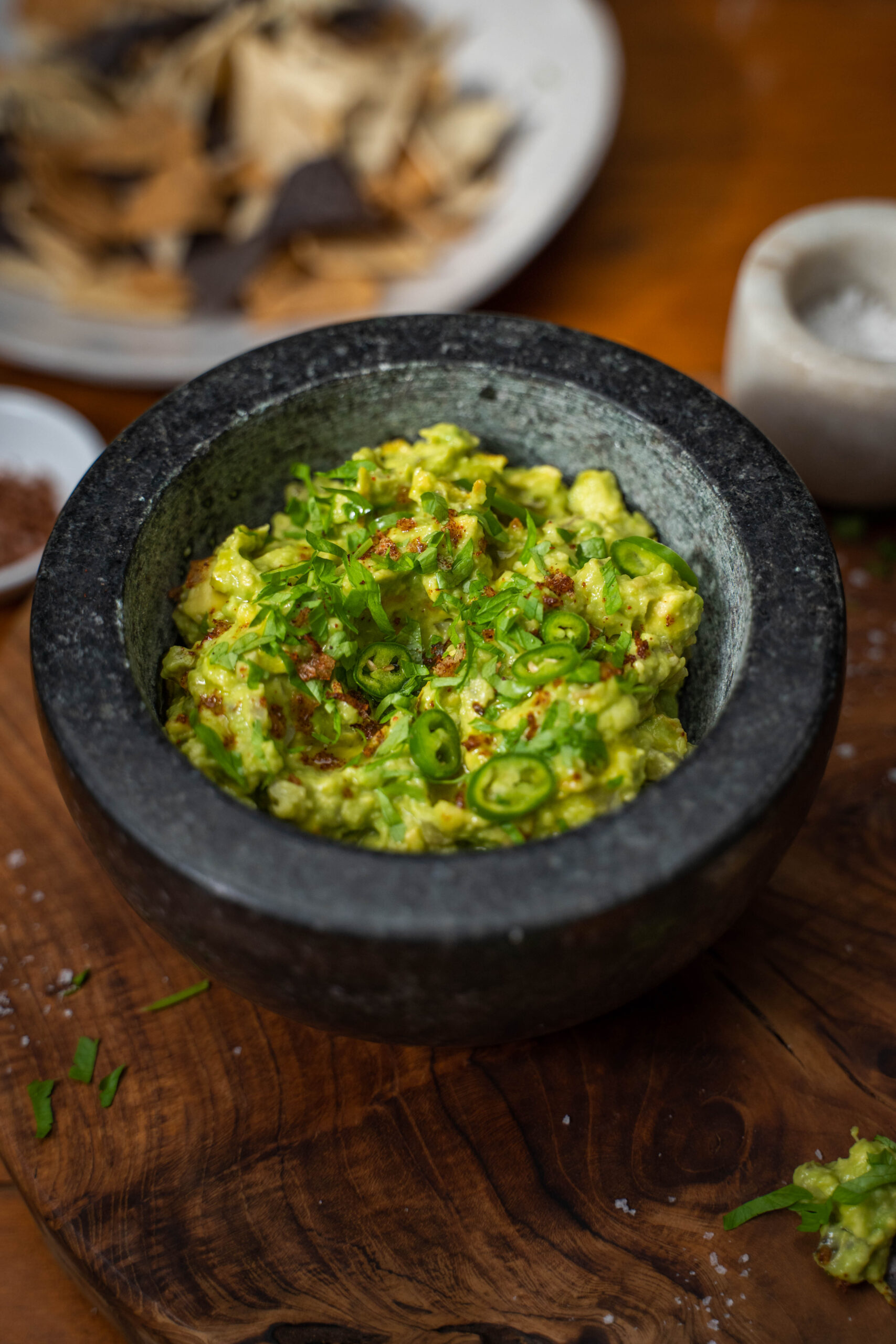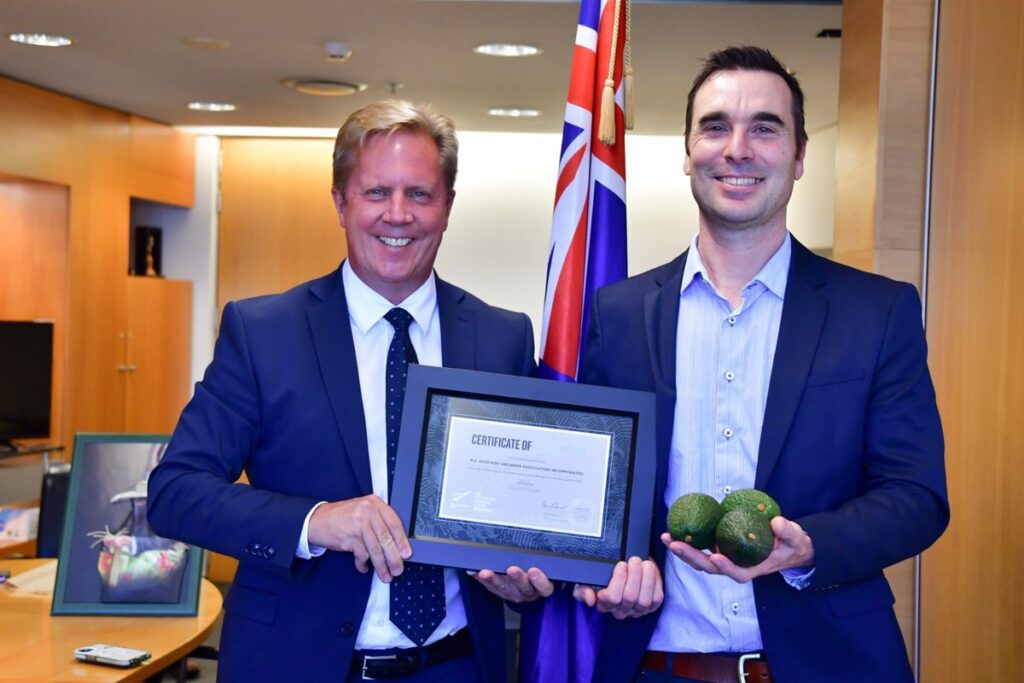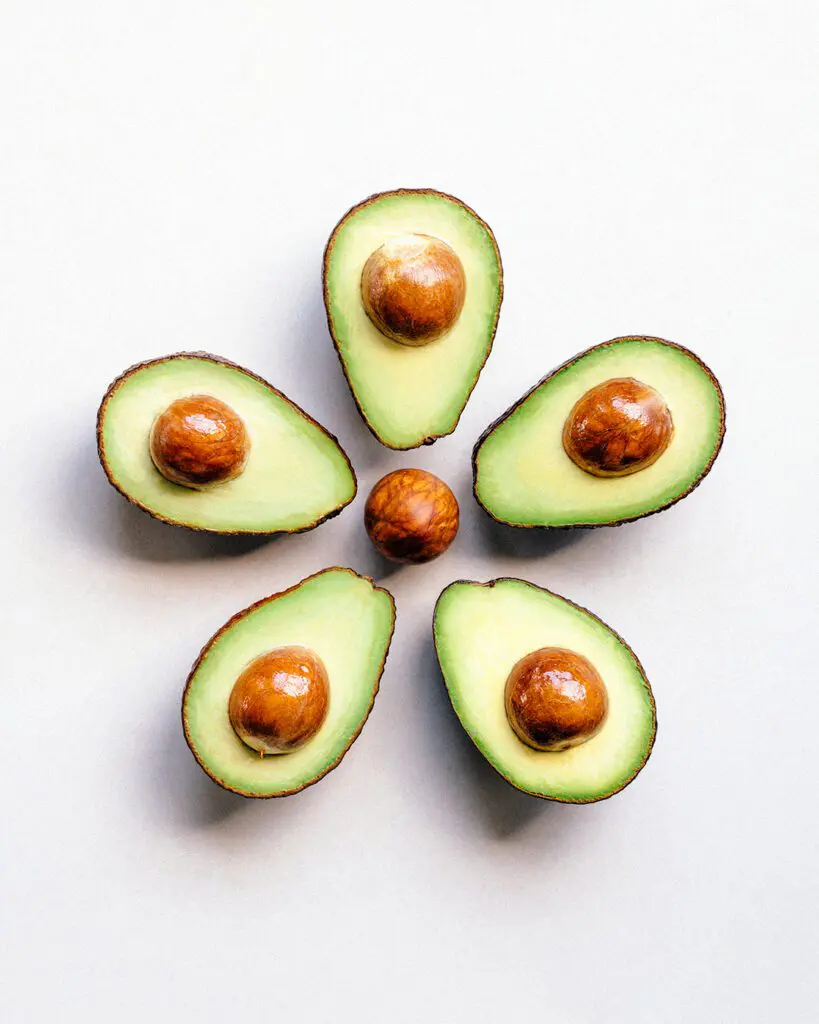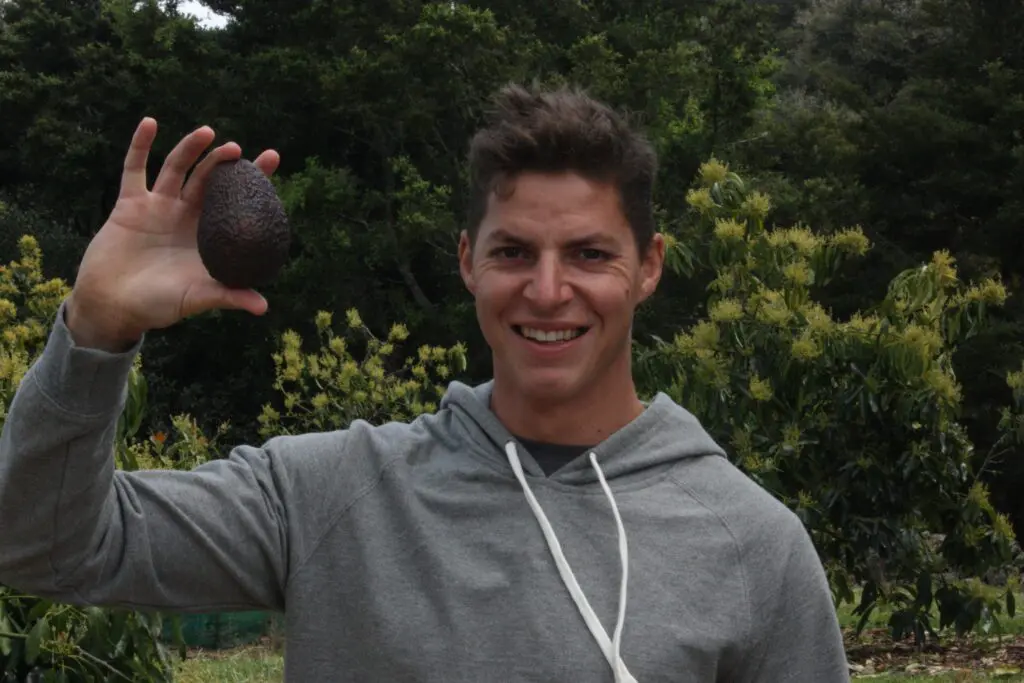World Avocado Congress NZ 2023 – Let’s get growing!
With less than six months to go until New Zealand hosts the World Avocado Congress for the first time, we speak with growers about their previous congress experiences and how this has influenced their journey as growers. This article is taken from the Spring 2022 edition of Avoscene magazine.
Karina & Wayne Johnson, Katikati, Bay of Plenty
Karina and Wayne Johnson were self-professed avocado novices when they attended their first World Avocado Congress in Colombia in 2019.
“We didn’t even have a stick in the ground when we attended! Our proposed block was still being cleared of unnecessary trees and structures in preparation for cross-ripping the land and soil preparation before planting our avocados. We only planted two months after we returned from the Colombian Congress.”
Given they were just starting out, Karina and Wayne were driven to attend the Colombian congress to get a feel for what it was like to be an avocado grower at the heart of the global avocado industry.
“At the time we went, we were greener than the average avocado but the benefits we gained were incredible. It upped the enthusiasm and decreased the apprehension as we were heading for the great unknown. The different and varied industry experts – growers, researchers, marketers – speaking from around the world was enlightening, covering all manner of topics including human health benefits, bees, pollination, soil health, pest management strategies. We learnt about different strategies on how the fruit was processed, including production of oils, through to research – the full health value of an avocado.”
Three years and 545 trees later, Karina and Wayne have their first tentative crop from half of the orchard this year.
“We’re looking forward to a greater yield next year, with our trees larger and our whole orchard being in production mode. We adopted the tramline system because of our limited growing acreage and terrain.”
At next year’s World Avocado Congress in Auckland, Karina and Wayne are looking forward to networking with overseas growers, NZ growers, and industry experts in order to keep learning as part of their grower journey.
“We feel the more New Zealanders who can attend this opportunity and support the NZ avocado industry, the better. It also allows us to showcase our own country and its adaptability of growing avocados to our climate and soil conditions. Even if you only glean one helpful insight and incorporate it into your own growing strategy, we feel it would be worth attending. You don’t know what you don’t know, so go out and learn as much as you can to help influence our own decision-making on your orchard.”
Kathy & Ross Woods, Maungakaramea, Northland
When it comes to attending World Avocado Congresses, Kathy and Ross Woods are well-versed veterans. Together they have attended congresses in Chile, Peru and Colombia, with Kathy also attending a congress in Australia.
“Aside from the opportunity to travel internationally, attending previous congresses gave us a wider perspective on the industry. We were interacting with serious global players and it showed us what we were up against. It’s demonstrated that we must have quality product and we must be producing economically to be relevant to our customers.”
In terms of applying the knowledge they gained from attending previous congresses, Kathy and Ross highlight two key areas of practical application:
“Firstly, Philip West and flower pruning. It was the first time we’d seen it and we had to travel to Peru to learn about it! The maths were simple and we now apply the principles every year. Our second key learning was tree height. We saw 13-year-old trees that were about three to three and a half metres high. This helped our focus on keeping some of our orchards low, with the rest getting lower. This resulted in much better packouts.”
Other highlights from attending included grower focused scientific session and field days.
“We’ve seen state of the art packhouses where there is a lot of automation and advanced temperature controls. While we’ve gained a wider appreciation of our small place in the world of avocados, what’s been key for us is the confidence to implement changes on our orchards.”
Kathy and Ross estimate they were 23rd in line when booking for next year’s congress in Auckland.
“We will hear the best science and hopefully potential solutions to ensure we can get our products to Asia in a profitable manner. We might not see the Andes and Colombian mountains, but Auckland is easily accessible and we’d be silly not to go.
“We encourage New Zealand growers, packers and exporters to go to the congress to get a different perspective of the global industry. Go there with a notebook with a target of five things you’ll write down that will enhance your orchards or system productivity. Then go home and if you only do one of those things, it would be a success. The congress is far bigger than just growers alone and we want to engage from the nursery industry right through to the supermarket chains.”
John Cotterell, Katikati, Bay of Plenty
John and Cindy Cotterell from Katikati have been growing since 1999 and have 10.5 canopy hectares of avocados.
“I still enjoy the challenge of growing avocados, which are a really great healthy food and I enjoy the great people involved in this industry,” says John.
John has previously attended World Avocado Congresses in Chile (with Cindy) and Australia and is looking forward to attending the next congress in Auckland in 2023.
“The opportunity to attend a World Avocado Congress virtually in your own backyard and for a very reasonable price should not be missed, it really is a once in a lifetime opportunity!”
Where possible, John recommends planning what sessions to attend in advance.
“In Chile I found the congress a little overwhelming to start with, there was so much going on. To me, one of the best things about the congresses was being able to approach speakers directly to talk to them one-on-one at many of the breaks or social events to discuss their topic.”
John says the biggest benefit he gained was opening his eyes to other growing methods such as intensive planting and regular pruning.
“Not everything you learn will translate to growing conditions in New Zealand, but some of it does, which is what makes growing avocados interesting. It’s a good idea to discuss what you’ve seen with your consultant to try and implement it into your own orchard.”
“When I attended the Chile congress I had been growing 4.5 canopy hectares of avocados near Katikati for almost ten years and was also managing a 40 canopy hectare avocado orchard for an absentee owner. This was considered a large planting for New Zealand at that time but compared to what we saw in Chile, the sheer scale and tree numbers were hard to get your head around. One new planting we visited in Chile was completely planted in ten days, 60,000 trees, irrigation installed – the scale of these plantings was massive.”
David French, Waiuku, South Auckland
David French’s first experience of growing avocados began in the late ‘80s. By the time he attended his first World Avocado Congress, he had been involved in the industry for 15 years.
“I’ve attended three congresses in total. The first two as an NZ Avocado director and the last as a grower.”
He’s looking ahead to congress number four in Auckland, especially the field trips, which were a highlight at previous congresses in Peru and Colombia.
“What motivates me to attend is the chance to hear about methods, techniques and new ideas that will potentially help me produce better quality and more consistent crops. I also find it very inspiring to be immersed in an event like this with like-minded people.”
Amongst the valuable knowledge he has gained, David cites foliar spraying (rather than injecting for phytopthora), continually adjusting pruning techniques and covering a portion of his orchard in hail netting.
David has some sound advice for other growers.
“Buy your tickets for WAC 2023 ASAP. You’re unlikely to get the chance to attend one in your own country again for a very long time. I know the last couple of years of growing have been quite tough but we all need to keep learning and evolving.”
Hugh Moore, Katikati, Bay of Plenty
Industry stalwart Hugh Moore planted his first avocados 43 years ago. Hugh had been growing for 22 years with mature trees when he attended his first World Avocado Congress. He’s attended a total of five congresses across the globe (Spain, Chile, Australia, Peru and Colombia), representing both the NZ Avocado Growers’ Association and his own personal interests as a grower.
When asked about the benefits of attending World Avocado Congresses, Hugh notes the opportunity to meet with international avocado scientists and learning the most up-to-date science.
“The meeting of many other nations’ growers showed that avocado growing requirements are the same throughout the world and our problems are also the same in most cases, apart from slight differences because of climate.”
At next year’s World Avocado Congress in Auckland, Hugh is looking forward to reuniting with growers from previous congresses.
“Meeting fellow growers from other countries leads to meaningful friendships which last for years.”
He encourages other New Zealand growers to attend.
“Any information gained, no matter how small, can influence changes on-orchard and lead to a better outcome. Just getting a better perspective from a science presentation can help growers better understand their trees. The expense of a ticket could be repaid many times over by one small change in on-orchard practice.”




